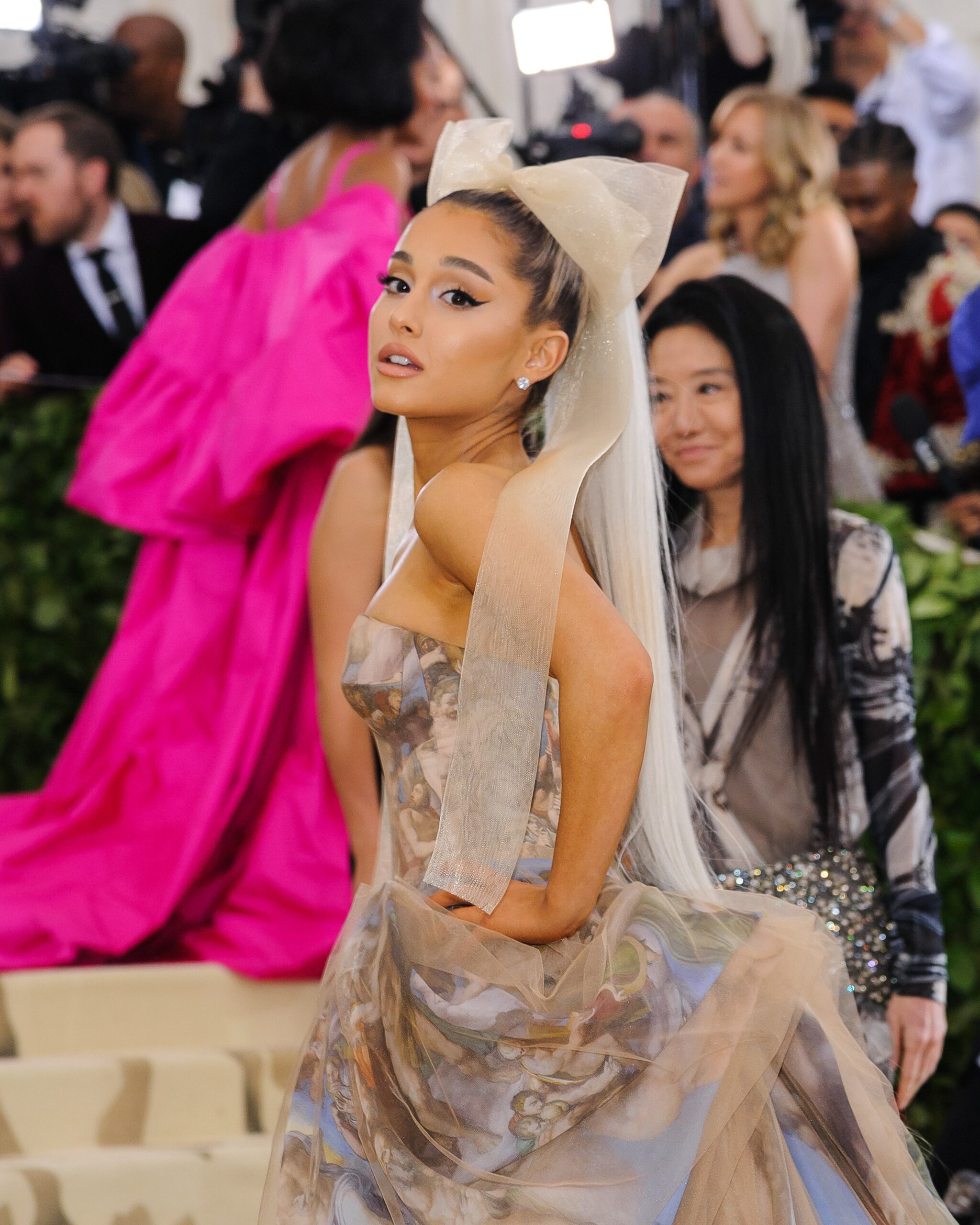
Post Malone is the poet laureate of all beer-drunken hearts, and his astute observations on life, love, and intoxication deserve to be taken far too seriously.
As a freshly graduated English major who just moved to Brooklyn, I feel that it’s my personal responsibility to share my philosophical musings with the world. Sadly, very few people read books anymore, so I’ve decided to apply my degree to something I love but that also may meet the masses on their terms: the exquisitely poetic lyrics of the one and only Post Malone.
In all honesty, I find Post Malone extremely peaceful. There’s a ragged edge to his music that corresponds well with the frayed edges of my soul, and Post Malone has provided refuge from many a storm. But why? Is it his quivery vibrato, or the starry reverb-drenched tropicana-hip-hop that backs it, or something more?
In an effort to determine the source of Post Malone’s ability to lull the howling wolves in my heart as effortlessly as Orpheus soothed the dragon of Colchis during the hunt for the Golden Fleece, I’ve decided to conduct an in-depth excavation of his lyrics.
6. “All this stuntin’ couldn’t satisfy my soul. Got a hundred big faces, but I’m still alone.”
Post Malone might seem like a mutated, glitchy mashup of a variety of cultures that are not his own combined with 2008-level fetishization of the come-up game, but actually a lot of his lyrics are pointed deconstructions of late capitalism (when you examine them closely through the rose-tinted lenses of the shades you’re wearing to hide your hangover). This line—like much of Beerbongs & Bentleys—clearly reveals the alienation and pain that defines existing within the chokehold of neoliberalism, even when you’ve supposedly “won” its rigged game.
Like so many of Posty’s messages, this lyric proves that we are nothing, in the end, without compassion for each other. We cling to each other in the darkness, like ships beating against the current, knowing our own selves only because others have lent us the faint glow of recognition and connection. Though we perform “stunts” like gender, class, or whatever the corporations have decided we must be, Post Malone knows that all the crowds in the world can’t fill the empty keg in his heart.
Rich & Sadwww.youtube.com
5. “It seems like every plug ran east to Utah, became Mormons”
One could (whether one should is another topic entirely) write an entire book about “Feeling Whitney,” but this line in particular offers a window into the depth and breadth of Post Malone’s body of references. “Whitney” is a poignant song about depression and wasting away in one’s bedroom, one that Hamlet might’ve sung had he lived to express his angst today. Post also manages to work in critiques of toxic masculinity while coming clean about how difficult it is to subvert these archetypes of masculinity and the need to compete to achieve them.
The song is also about addiction and the emptiness of not being able to find one’s fix because even all your dealers have left you. But perhaps there’s more: Perhaps Post Malone is expressing hope that someday he’ll undergo a Kanye West-style religious awakening, that he’ll get clean and join a church, that he’ll kick his selfishness and his drug habits and that he’ll find the pure faith and love that he’s always been brushing up against in his music but running from in his real life. Perhaps Utah is a symbol for an Edenic transcendence or a world beyond material desires. Or maybe Post Malone just needs a new dealer.
Post Malone – Feeling Whitney (Lyrics)www.youtube.com
4. “When she’s comin’ for my heart, it feels like Armageddon”
In “Over Now,” Post Malone draws a parallel between violence and love, two kindred forces that have the potential to obliterate human beings, totally altering the courses of physical and mental realities, sometimes creating or ending life, and resonating for a long time after the fallout.
In the Book of Revelations, the word Armageddon refers to the apocryphal location of a massive battle that occurs during the end times. The term also broadly refers to the end of the world in any form. By comparing love to Armageddon, is Post Malone arguing that the end times are nigh? Is he referring to climate change, or the onslaught of artificial intelligence, or something more internal and universally distributed?
Love and death have always been concurrent forces, running parallel to each other across literature and the human experience. In her thesis Conceptions of Love and Death in Early Modern Literature, Jessica Dyson writes, “As Michael Neill has argued, ‘death’ is not something that can be imagined once and for all, but an idea that has to be constantly re-imagined across cultures and through time; which is to say that, like most human experiences that we think of as ‘natural’, it is culturally defined.’ We might,” she adds, “of course, argue that the same is true of ‘love’ and ‘desire.'”
Perhaps love will obliterate us; it might be our Armageddon—but every end is also a beginning, and the word “apocalypse” itself actually means “revelation,” not disaster. Perhaps in this age of ecological apocalypse, we need Armageddon-level love to annihilate pre-existing realities and invent new paradigms and stories that can guide us into a new and more interconnected age.
Over Nowwww.youtube.com
3. “Population four million / how I see the same b*tches?”
In this lyric, Post Malone raises the concept of the archetypal synchronicity, which is a term Carl Jung defined as “the acausal connection of two or more psychic and physical phenomena.” Essentially, the refers to a strange, often symbolic coincidence that happens outside of the bounds of reason and that challenges conventional logic. Frequently cited in occult theory, synchronicities refer to higher plans and a potential invisible fretboard of interconnected energy lines that we cannot see but that connect us all.
How else could there be four million people wherever Post Malone is, and yet, he only sees the same b*tches, over and over, reoccurring like clockwork? Why do we constantly find ourselves drawn towards the same energies, falling into the same patterns and returning to the same ghosts that began haunting us years or generations ago?
Same Bitcheswww.youtube.com
2. “A paranoid man makes paranoid plans”
Once described by The Atlantic’s Spencer Kornhaber as “The Voice of Modern Brain Fog,” Post Malone always paints searing portraits of the apathy and anxiety that define our digital age. In this line, Posty addresses the fact that our realities tend to reflect our internal worlds. We attract the energies we put out, we accept the love we think we deserve, and if we are internally paranoid, then our world will reflect that paranoia, giving us more reasons to be afraid and creating a feedback loop. The line between our psychic worlds and physical worlds, as Carl Jung theorized, is thinner than we may realize.
One would also imagine that the more time we spend online, the more our exterior realities will end up resembling our digital mindscapes. As AI gets better at learning about us and selling us what it thinks we want, and as the Internet becomes more seamlessly connected to our brains, our worlds will begin to resemble the digital media we intake. Will we all become hollow personas—like Elisabet in the Ingmar Bergman film of the same name—actors in movies we very much would like to be excluded from? Yet what if we decided we could curate our realities for good, if we could change our minds and our activities and thus change everything around us? Post Malone asks these deepest of questions and more in this song about anxiety, surveillance, meaning, and the nature of reality itself.
Post Malone Paranoid (Lyrics Video)www.youtube.com
1. “It’s true that all that you know / is all that you are. You said / it’s all you want and more. So f*ck off and pour another drink.”
“Stay” is a poetic anthem, a journey through the give and take of a crumbling relationship tied together by thin strings of sleeplessness, alcohol, and broken dreams. These first lines are Post Malone at his most philosophical; a veritable Descartes for the Internet era, he puts a new spin on “I think therefore I am” and slaps us right in the existentialism with that doozy of a first line. If all that we know is all that we are, then how can we change? Can we only be changed by others? If we only exist because we think, then is existence all a thought in our minds? Should all philosophers and new postgrads really just f*ck off?
Post Malone – Stay (Lyrics)www.youtube.com
Post Malone, you’ve done it again. Now it’s my turn to f*ck off and grab a beer from the office keg in Posty’s honor, thank you very much. Cheers!
- Post Malone Talks New Album, Courtney Love, and COVID-19 on Nirvana Livestream – Popdust ›
- Listen to Post Malone Cover Nirvana Songs Live This Friday – Popdust ›
- Post Malone Lyrics ›
- 20 Post Malone Song Lyrics & Music Videos From Today’s Newly … ›
- Post Malone lyrics, songs and albums | LyricsFreak ›
- Post Malone’s ‘Wow.’ Lyrics | Billboard ›
- The five most peak Post Malone lyrics on ‘Hollywood’s Bleeding’ ›
- Post Malone – Die For Me (Lyrics) ft. Future, Halsey – YouTube ›
- Post Malone Song Lyrics | MetroLyrics ›
- Post Malone – circles (Lyrics) – YouTube ›
- Post Malone Lyrics, Songs, and Albums | Genius ›
- Post Malone Lyrics ›












